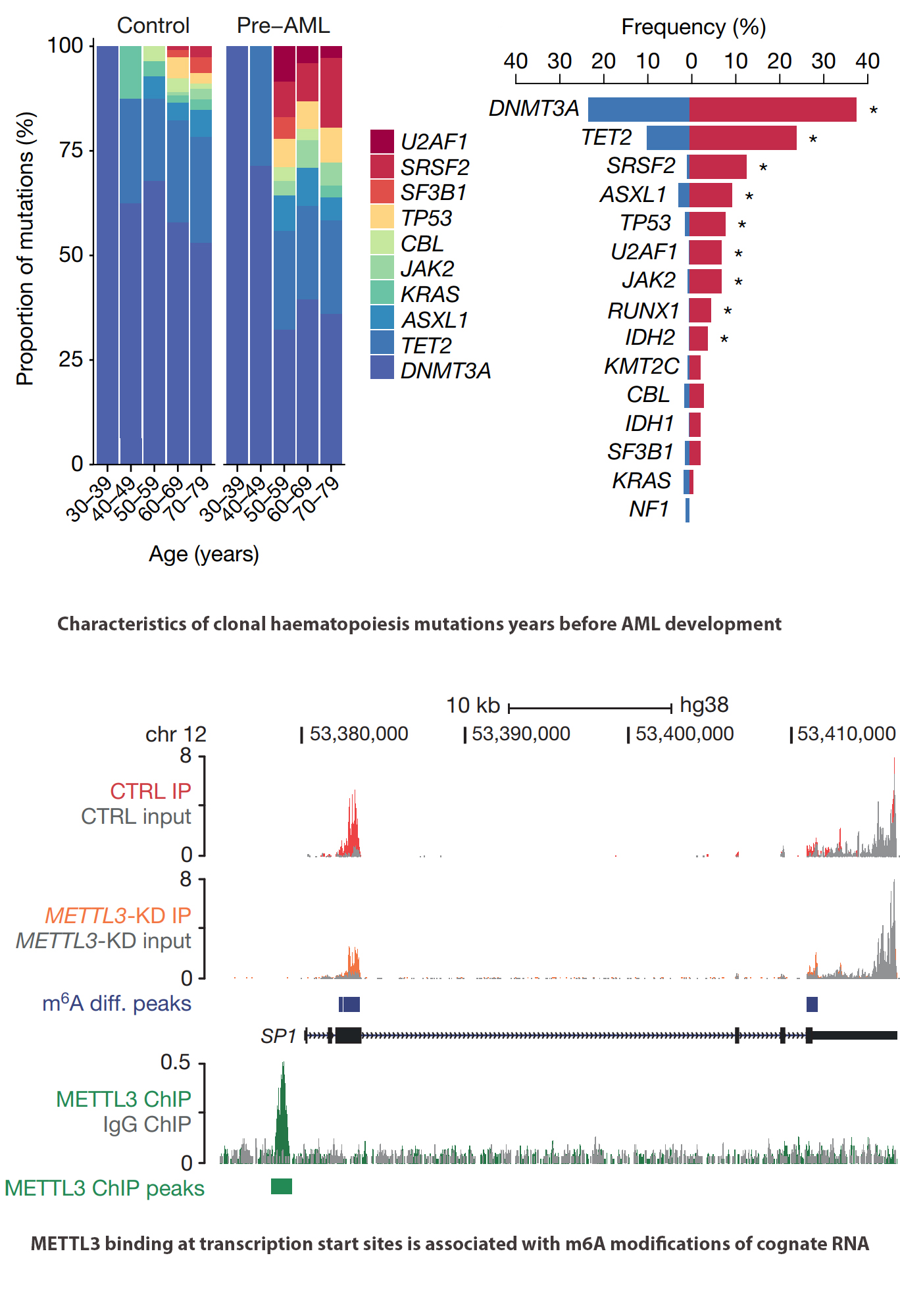Professor George Vassiliou
Position: Professor
Personal home page:
https://www.stemcells.cam.ac.uk/people/pi/vassiliou
Email:
info@haem.cancer.cam.ac.uk
PubMed journal articles - click here
Professor George Vassiliou is pleased to consider applications from prospective PhD students.
I am a CR-UK Senior Clinical Fellow and a member of Faculty at the Wellcome Sanger and Wellcome-MRC Cambridge Stem Cell Institutes. My group is studying the pre-clinical evolution, pathogenesis and treatment of haematological malignancies with a particular focus on acute myeloid leukaemia (AML). I am also a Consultant Haematologist at Addenbrooke's Hospital in Cambridge where I treat patients with haematological cancers.
Symplectic Elements feed provided by Research Information, University of Cambridge
Tzelepis K, et al. SRPK1 maintains acute myeloid leukemia through effects on isoform usage of epigenetic regulators including BRD4. Nature Communications, 9, 5378, doi:10.1038/s41467-018-07620-0 (2018).
Abelson S, Collord G, et al. Prediction of acute myeloid leukaemia risk in healthy individuals. Nature 559, 400-404, doi:10.1038/s41586-018-0317-6 (2018).
Gozdecka M, et al. UTX-mediated enhancer and chromatin remodeling suppresses myeloid leukemogenesis through noncatalytic inverse regulation of ETS and GATA programs. Nature Genetics, doi:10.1038/s41588-018-0114-z (2018).
Barbieri I, Tzelepis K, et al. Promoter-bound METTL3 maintains myeloid leukaemia by m(6)A-dependent translation control. Nature 552, 126-131, doi:10.1038/nature24678 (2017).
Dovey OM, et al. Molecular synergy underlies the co-occurrence patterns and phenotype of NPM1-mutant acute myeloid leukemia. Blood 130, 1911-1922, doi:10.1182/blood-2017-01-760595 (2017).
Mupo A, et al. Hemopoietic-specific Sf3b1-K700E knock-in mice display the splicing defect seen in human MDS but develop anemia
without ring sideroblasts. Leukemia 31, 720-727, doi:10.1038/leu.2016.251 (2017).
Tzelepis K, et al. A CRISPR Dropout Screen Identifies Genetic Vulnerabilities and Therapeutic Targets in Acute Myeloid Leukemia. Cell Reports, 17, 1193-1205, doi:10.1016/j.celrep.2016.09.079 (2016).
McKerrell T, et al. Development and validation of a comprehensive genomic diagnostic tool for myeloid malignancies. Blood, doi:10.1182/blood-2015-11-683334 (2016).
McKerrell T, et al. Leukemia-associated somatic mutations drive distinct patterns of age-related clonal hemopoiesis. Cell Reports 10, 1239-1245, doi:10.1016/j.celrep.2015.02.005 (2015).
Vassiliou G, et al. Mutant nucleophosmin and cooperating pathways drive leukemia initiation and progression in mice. Nature Genetics, 43(5):470-5, doi: 10.1038/ng.796 (2011).
















